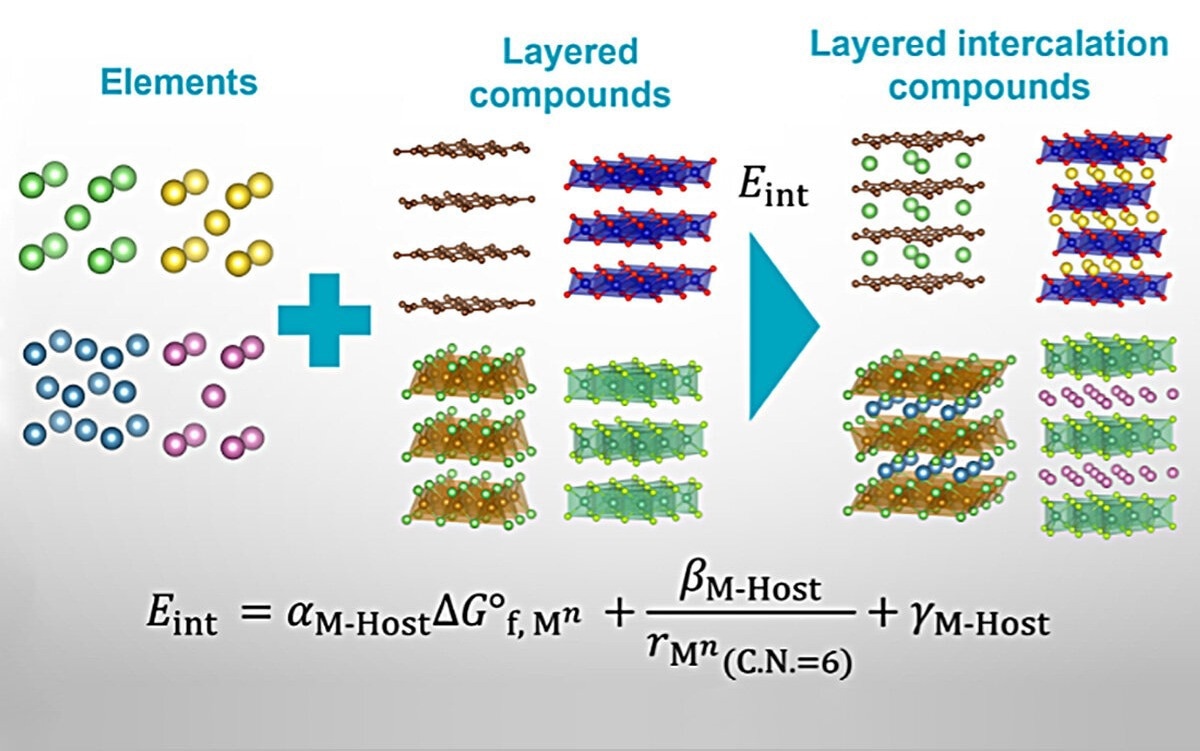
Image Credit: The University of Tokyo
Unfortunately, determining which of the numerous potential intercalated materials is stable ahead of time is challenging, requiring a great deal of trial-and-error laboratory work during the product development process.
The study was published in the journal ACS Physical Chemistry Au. This work will enable systematic design guidelines to accelerate the development of next-generation high-performance electronics and energy-storage devices.
To fully grasp the research team's accomplishment, it is crucial to comprehend this study. Intercalation refers to the reversible insertion of guest entities (atoms or molecules) into hosts, such as 2D-layered materials.
Intercalation is often used to change the host's characteristics or structure to enhance device performance. This is evident, for instance, in commercial lithium-ion batteries. Even though there are numerous synthetic techniques for creating intercalated materials, scientists have not been able to accurately predict which combinations of hosts and guests will remain stable.
As a result, developing new intercalated materials to impart next-generation device functionalities has required a lot of lab work. The research team aimed to minimize this lab work by suggesting a simple predictive tool for host-guest stability.
We are the first to develop accurate predictive tools for host-guest intercalation energies, and the stability of intercalated compounds, and our analysis, based on a database of 9,000 compounds, uses straightforward principles from undergraduate first-year chemistry.”
Naoto Kawaguchi, Study Lead Author, Institute of Industrial Science, The University of Tokyo
The fact that the researchers' energy and stability calculations only required two guest properties and eight host-derived descriptors is a particular strength of the work. In other words, only the underlying physics of the host-guest systems were required; Initial “best guesses” were not. Moreover, the scientists tested their model against almost 200 sets of regression coefficients.
We are excited because our regression model formulation is straightforward and physically reasonable, and other computational models in the literature lack a physical basis or validation against unknown intercalated compounds.
Teruyasu Mizoguchi, Study Senior Author and Professor, Institute of Industrial Science, The University of Tokyo
This work represents a significant advancement in reducing the amount of time-consuming laboratory work usually needed to prepare intercalated materials. The time and cost needed for related research and development will be reduced because many electronic and energy storage devices, both present and future, rely on these materials. As a result, products with cutting-edge functionality will be available on the market sooner.
Journal Reference:
Kawaguchi, N., et al. (2024) Unraveling the Stability of Layered Intercalation Compounds through First-Principles Calculations: Establishing a Linear Free Energy Relationship with Aqueous Ions. ACS Physical Chemistry Au. doi.org/10.1021/acsphyschemau.3c00063.